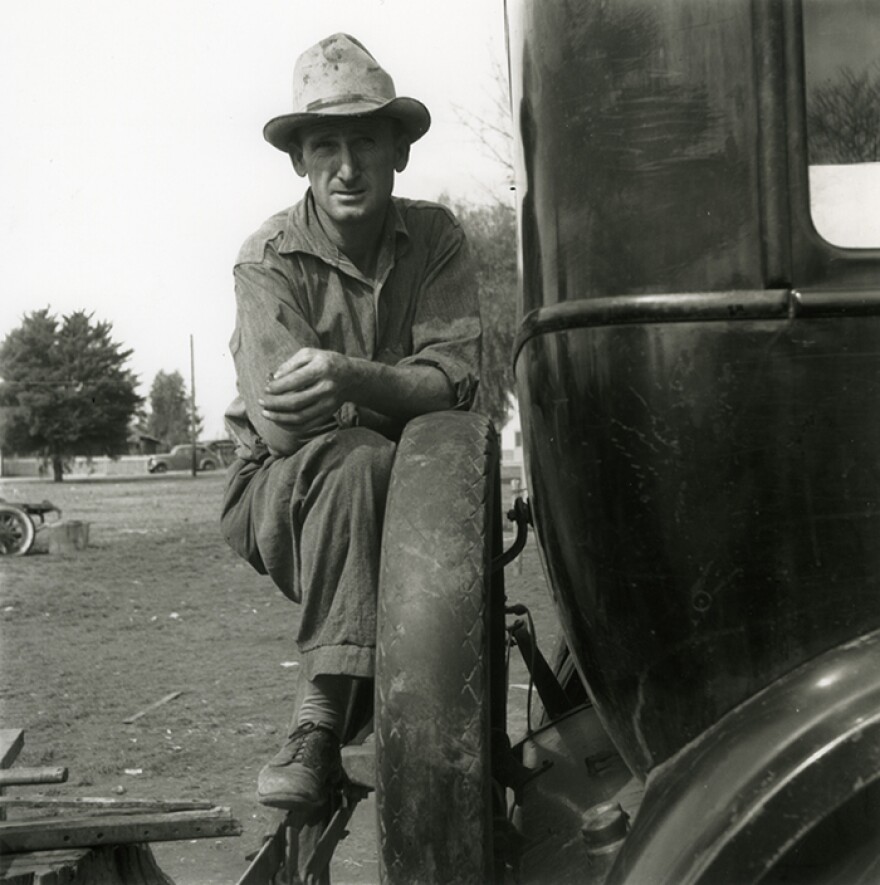It's a simple human story, repeated countless times in countless settings.
It begins with absolute necessity of very hard work and the will power to get it done, an ethic white rural folks have celebrated proudly for 150 years--"that kid really knows how to work."
At 98, barely able to walk, my father-in-law still apologizes for having done nothing all day in the Home. That laziness grieves him. He dreams of working all afternoon--doesn't really matter how, as long as he sweats. You know?
Now put a man or woman like that through the Depression, and if that will doesn’t die, it skyrockets. A big-shouldered farmer named Carl remembered meals composed of nothing more than lard on bread. Cupboards were bare. When he'd pull a lard sandwich out of his honey bucket lunch pail, he remembered being afraid some other kid at school would smell it and know how dirt poor his family really was. No matter. Ya’ gotta work.
Throw in a penchant for an austere religion practiced fiercely, a faith fitted to condemn more swiftly than to love, a religion so heavy-laden that a man spends snarling. There's that too. Tough stuff. Think those photos of Dorothea Lange.
Then, bring on a horror, a tragedy, the worst life can afford a parent, the death of a child. Grief unending.
Those ingredients comprise a simple story I just read, a story heard countless times in dozens of variations.
This farmer, Carl, now deceased, remembered growing up with a father like the old man I just tried to describe. Carl was himself the namesake of a boy he never knew, a child who died at three months, another Carl. This is a story about a man and his father.
Carl says there came a time when he and his siblings--there were eleven kids--got together to ask themselves whether it might not be better for their father not to know the truth about something he couldn’t bring himself to identify in a memoir he wrote sixty years later. The kids were serious, he says, because they knew how much anger they'd trigger if Dad, tough as an old harness, discovered whatever kind of sin they’d somehow committed. Together, honestly, they decided the moral high ground was to lie. True story.
And then there was that time two of the girls damaged the soft top of the old man’s car accidentally and didn't tell him that time either--never did in fact, not until, years later, the old man was on his death bed. Even then, lying there helpless, Carl says, Pa got steamed.
That’s the man in the story. Someone like Calvin Coolidge, who someone once said was so sour it just seemed he was weaned on a pickle. That kind of man. That kind of father.
And now, the story.
Decades later, Carl, his wife, and his parents took a ride back to the country church they'd attended when the kids were little, a country church surrounded by a handful of houses and a school that long ago closed its doors.
Carl says he and his wife walked out back together with his parents, walked out into the cemetery, where a little stone slightly raised from the grass stood along the fence all by itself, the lot where his namesake had been buried way back in 1926. They found it easily. You still can today. Found it myself just last week, all by itself in that country churchyard, all alone even if this story belongs to many of us.
Anyway, there the four of them stood, Carl writes in his memoir. He claims he’d never forget what he saw right then, when he looked up into the old bird's face as the four of them stood at the little boy’s grave. Hard as it was for him to believe, the old man was crying tears Carl says in his memoir he'd never, ever forget.
That’s the very human story remembered in a thousand rural settings out here on the edge of the Plains, told in maybe a dozen languages, maybe not told but remembered, always remembered—the day the old man cried.






